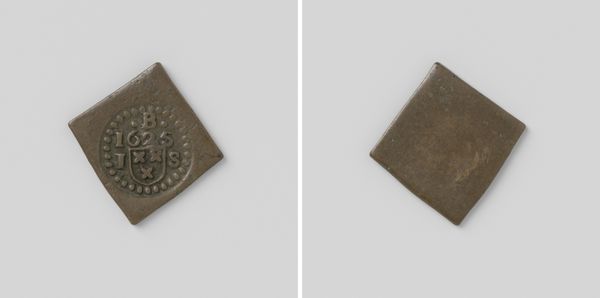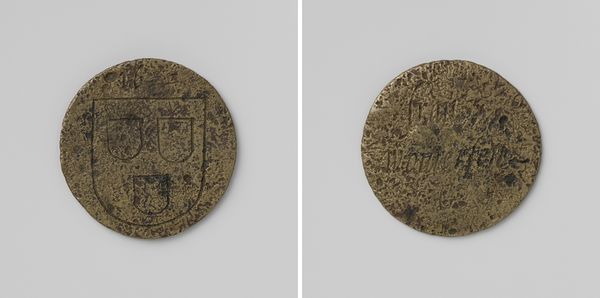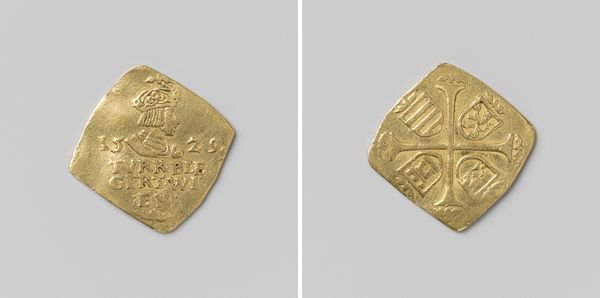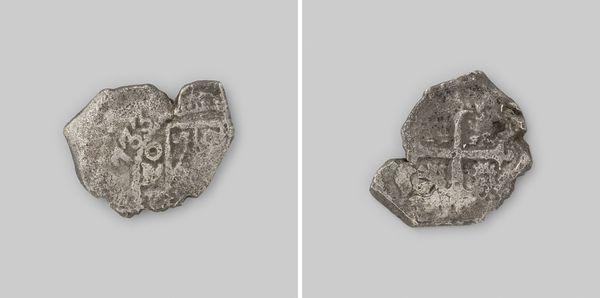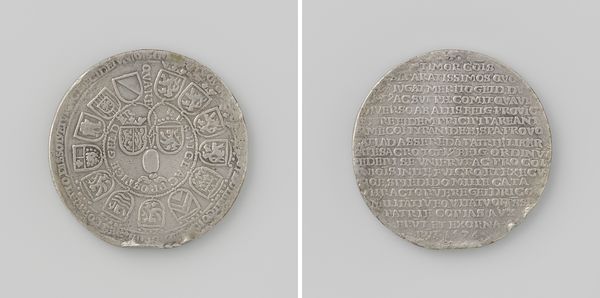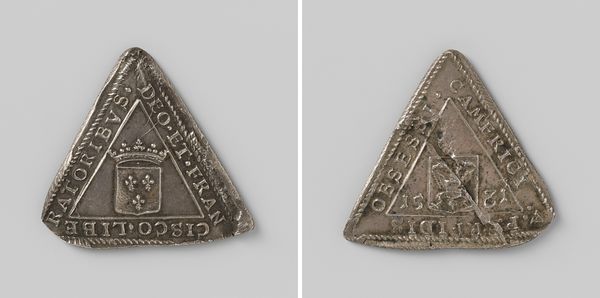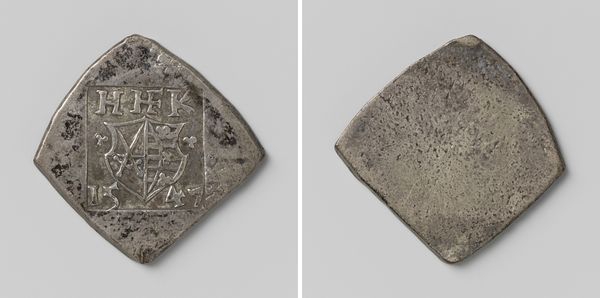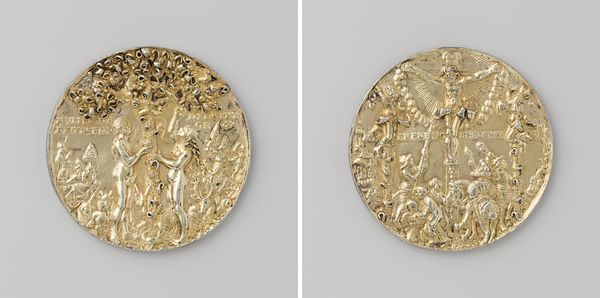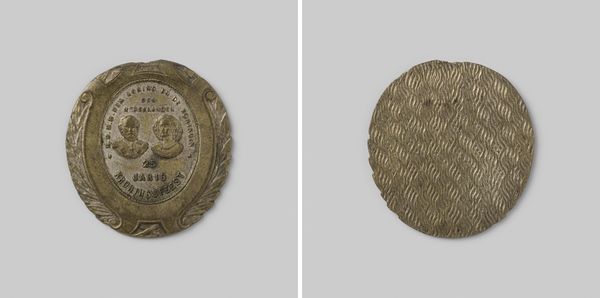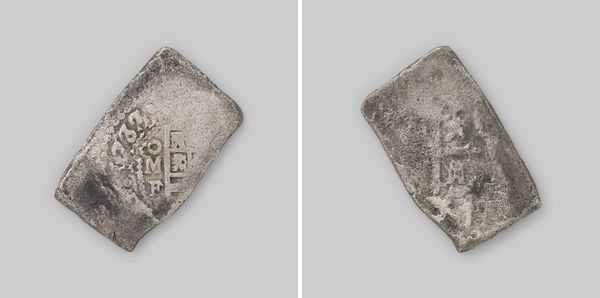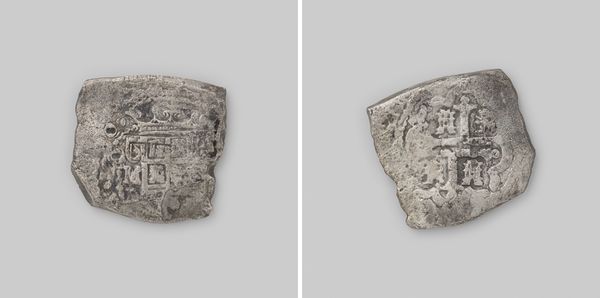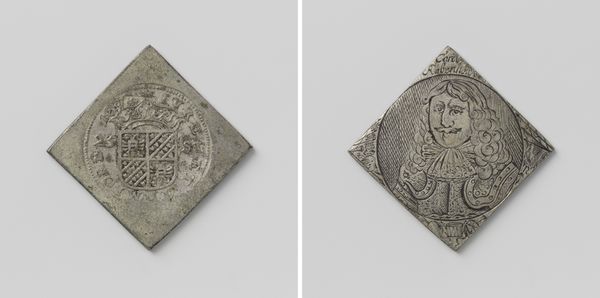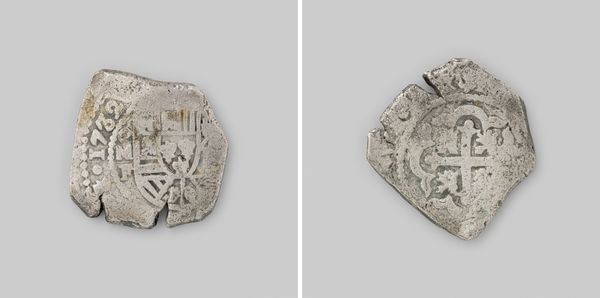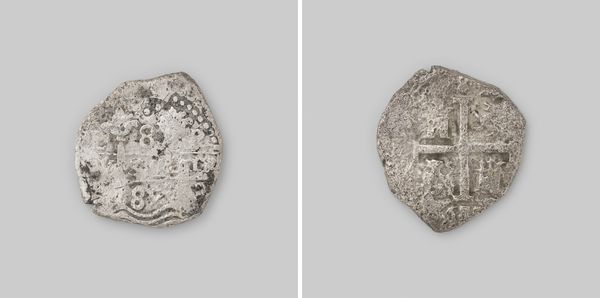
Dubbele gouden dukaat, noodmunt van Maurits van Saksen uit Leipzig, geslagen tijdens het beleg door Johan Frederik, keurvorst van Saksen. 1547
0:00
0:00
print, metal, gold, engraving
# print
#
metal
#
gold
#
11_renaissance
#
history-painting
#
engraving
Dimensions: height 2.4 cm, width 1.9 cm, weight 5.92 gr
Copyright: Rijks Museum: Open Domain
Editor: Here we have a double gold ducat, a Dutch coin from 1547. It was minted in Leipzig for Maurice of Saxony during a siege. The diamond shape is quite striking. What symbols and meanings do you find embedded in this object? Curator: The diamond shape itself speaks of resilience and a break from traditional forms, fitting for a "noodmunt," an emergency currency. On one face, we see Maurice's heraldic shield intertwined with foliage, a symbolic claim to power even under duress. Notice how the leaves almost seem to constrict the shield. Does that tell you anything about the state of affairs at the time? Editor: It does give the impression of pressure, almost a sense of being trapped. What about the inscription? Curator: Ah, text as image! The lettering is tightly packed, another visual echo of constraint and urgency. The coin broadcasts both a ruler's name and a place: Leipzig. These were talismans of a sort. What did currency represent back then? Editor: It was about value, but also stability and trust in a leader, I guess. Curator: Precisely. The imagery tries to conjure confidence and enduring power in the face of a siege. What is so impressive about such historical works, even small ones, is their ability to condense layers of historical information with imagery. Editor: This makes me think differently about coins. Curator: It reveals a visual encoding strategy. Symbols help embed complex meanings that speak across time.
Comments
No comments
Be the first to comment and join the conversation on the ultimate creative platform.
